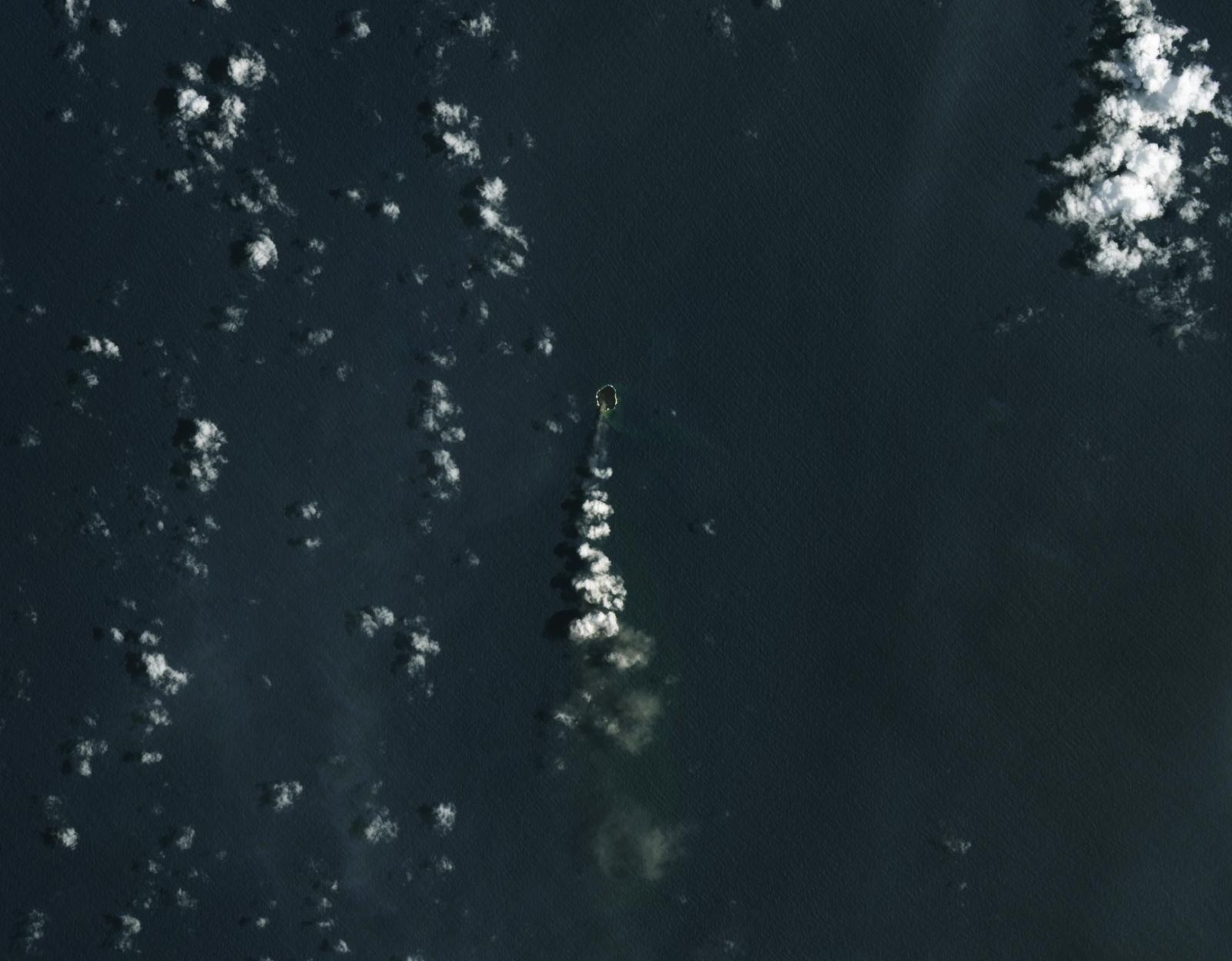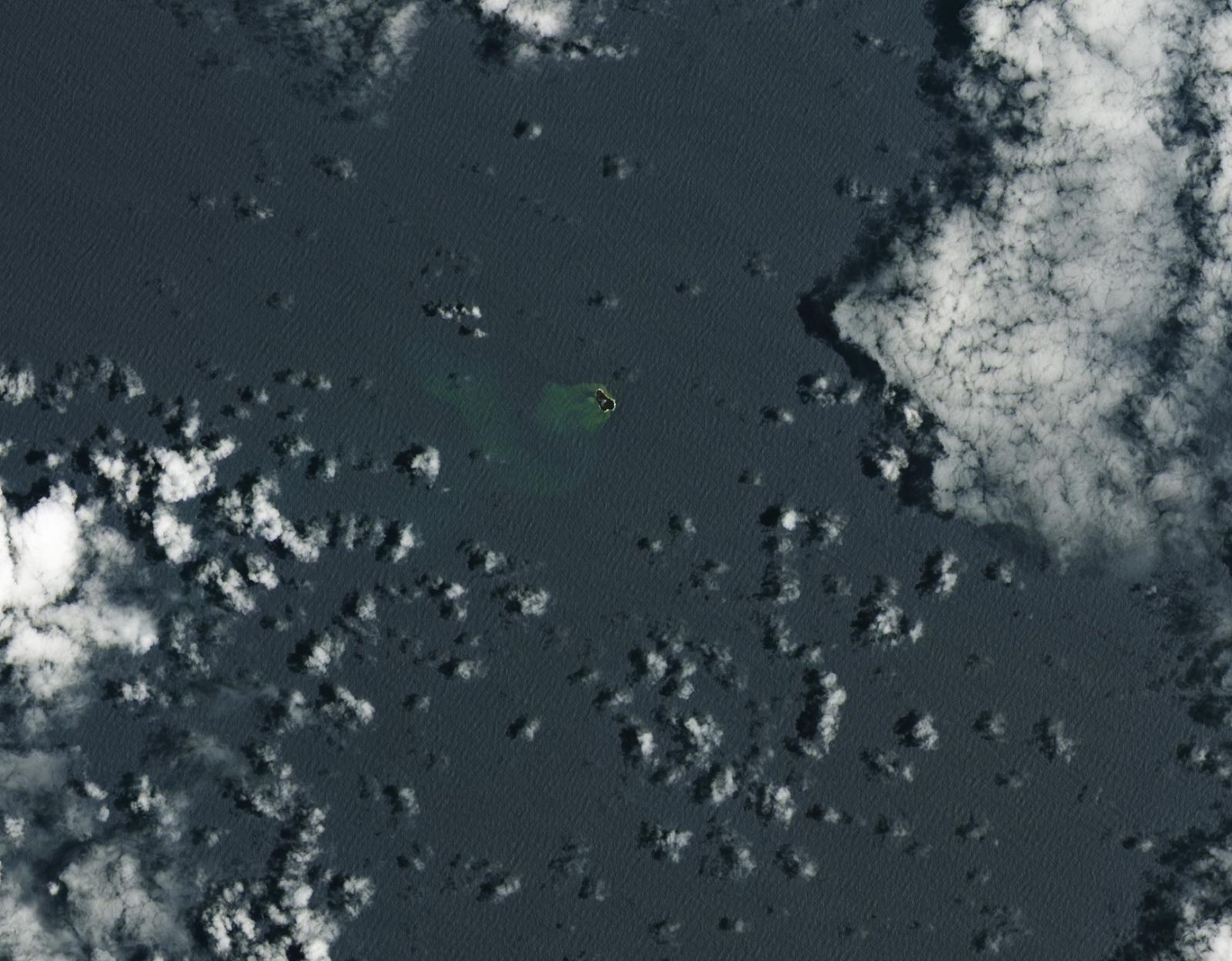An island is born from the depths: the underwater volcano of Tonga in action 🌋
Follow us on Google News (click on ☆)

Satellite image of Home Reef captured by Landsat 8 on February 2, 2025.
Credit: NASA Earth Observatory
The surrounding waters, tinged with unusual colors, testify to the ongoing volcanic activity. These discolorations are likely due to the presence of sulfur, which, when mixed with water, gives the plumes a greenish hue. This underwater activity has varied effects on marine ecosystems, sometimes stimulating phytoplankton growth while being harmful to certain marine species.
Past eruptions of Home Reef have formed temporary islands, but geologists estimate that the new island could last several years. Unlike previous ones, this formation is characterized by effusive flows that create material more resistant to erosion.
Located in the Tonga-Kermadec subduction zone, Home Reef is at the heart of one of the most active regions on the planet in terms of volcanism. This zone, where three tectonic plates meet, is known for its deep ocean trenches and intense volcanic arcs.
The eruptions of Home Reef, although spectacular, have had little impact on local populations, unlike the eruption of the neighboring volcano Hunga Tonga-Hunga Ha'apai in 2022. Satellites play a crucial role in monitoring these underwater volcanoes, offering a quick and safe method to observe these natural phenomena.

Satellite image of Home Reef captured by Landsat 9 on November 22, 2024.
Credit: NASA Earth Observatory
NASA images, captured by Landsat satellites, perfectly illustrate this terrestrial dynamic, showing how the Earth continues to transform before our eyes. These observations not only help understand the geological processes at play but also predict potential impacts on the environment and local communities.
How do underwater volcanoes create new islands?
Underwater volcanoes, like that of Home Reef, erupt when magma from the Earth's depths breaks through the oceanic crust. This magma, cooling upon contact with water, solidifies to form volcanic rock. Over successive eruptions, these accumulations of rock can emerge above the water's surface, thus creating new islands.
The process is influenced by the type of eruption. Effusive eruptions, characterized by flows of fluid lava, tend to form more resistant and durable structures. In contrast, explosive eruptions, which fragment lava into ash and debris, produce islands more susceptible to rapid erosion by waves and currents.
The formation of new islands offers fertile ground for the study of biological colonization. The first species to establish themselves, known as pioneer species, play a crucial role in creating a viable ecosystem. These islands also represent natural laboratories for understanding fundamental geological and biological processes.
What is the impact of underwater eruptions on marine ecosystems?
Underwater eruptions have effects on marine ecosystems. On one hand, they can enrich the waters with nutrients, such as iron, which stimulate phytoplankton growth, the base of the marine food chain. This increase in biological productivity can benefit many marine species.
However, volcanic plumes are often hot and acidic, which can be harmful to marine life. Species sensitive to changes in temperature and pH can be severely affected, even locally disappearing. Moreover, eruptions can release toxic gases and heavy metals, exacerbating negative impacts.
Despite this, new islands formed by eruptions offer habitats for pioneer species, which can in turn attract other forms of life. These processes illustrate nature's ability to regenerate and adapt, even under extreme conditions.